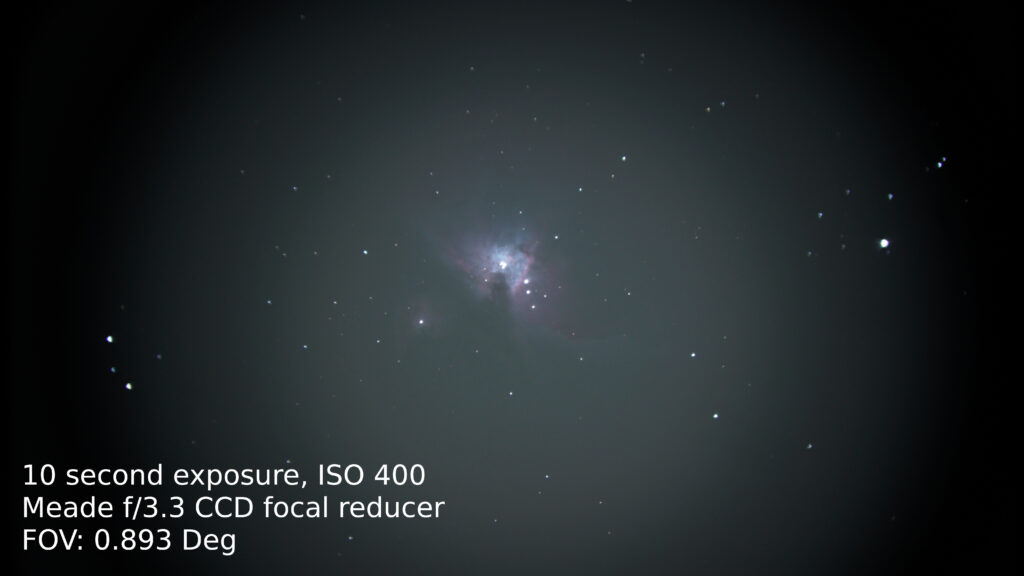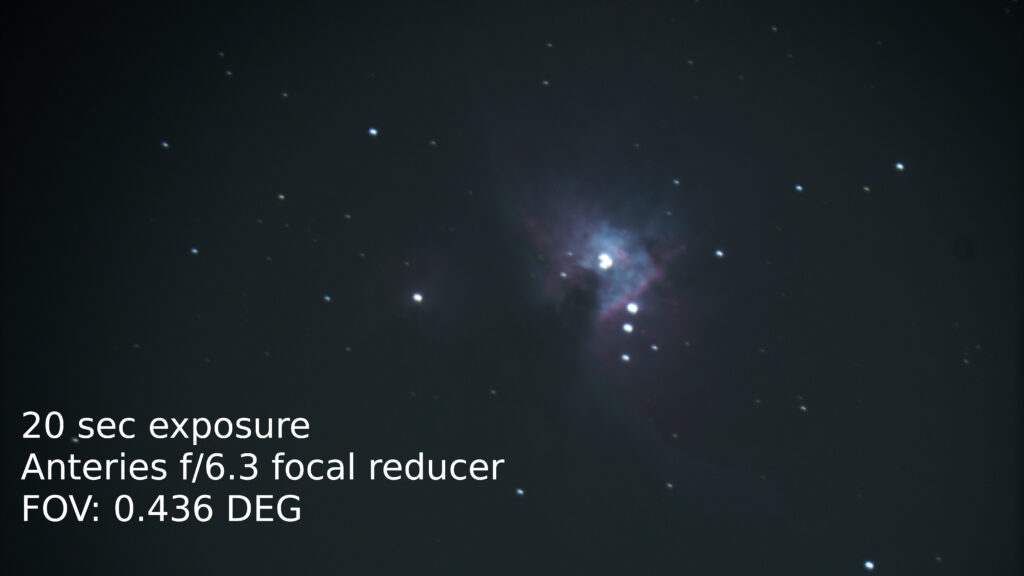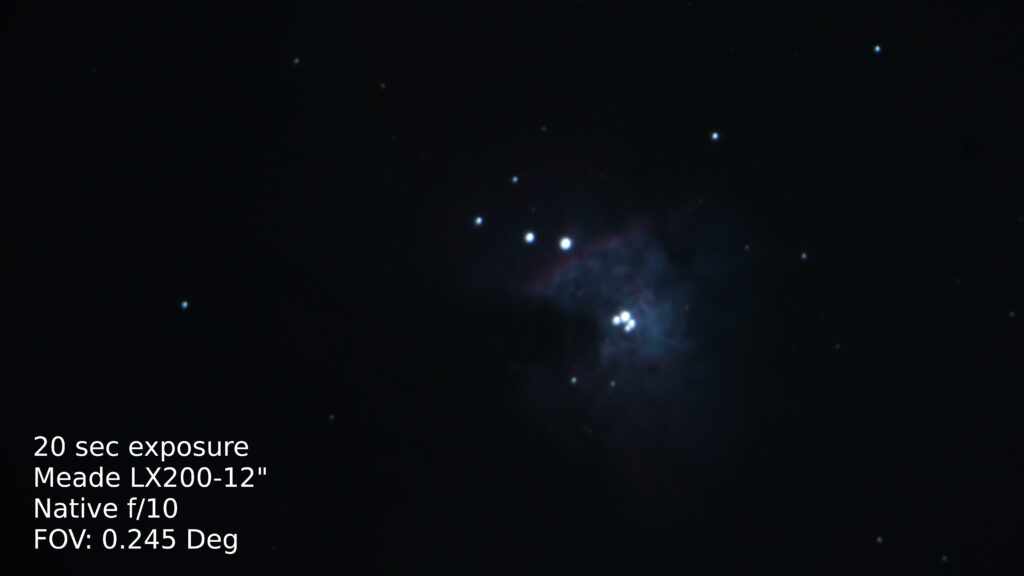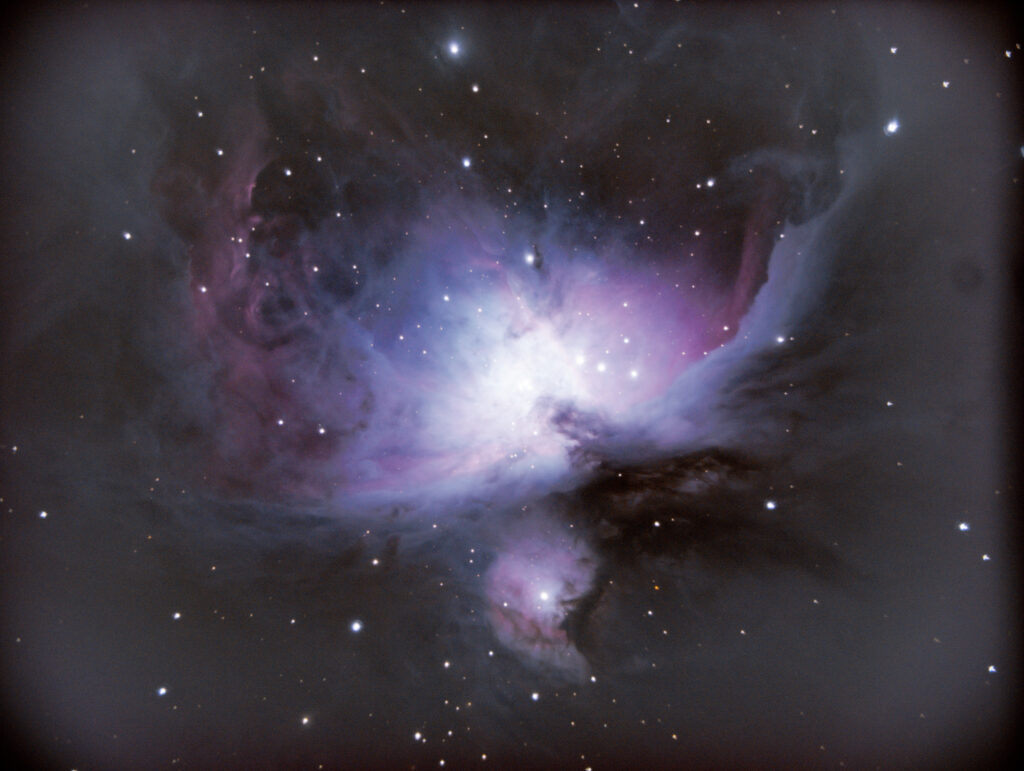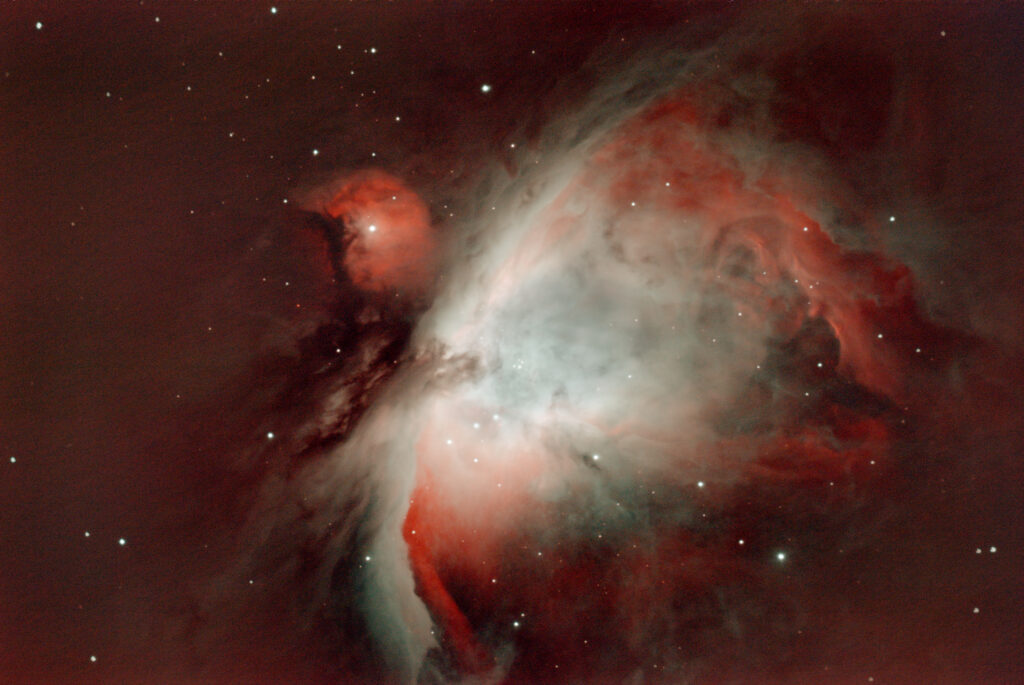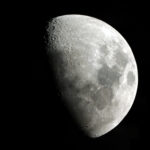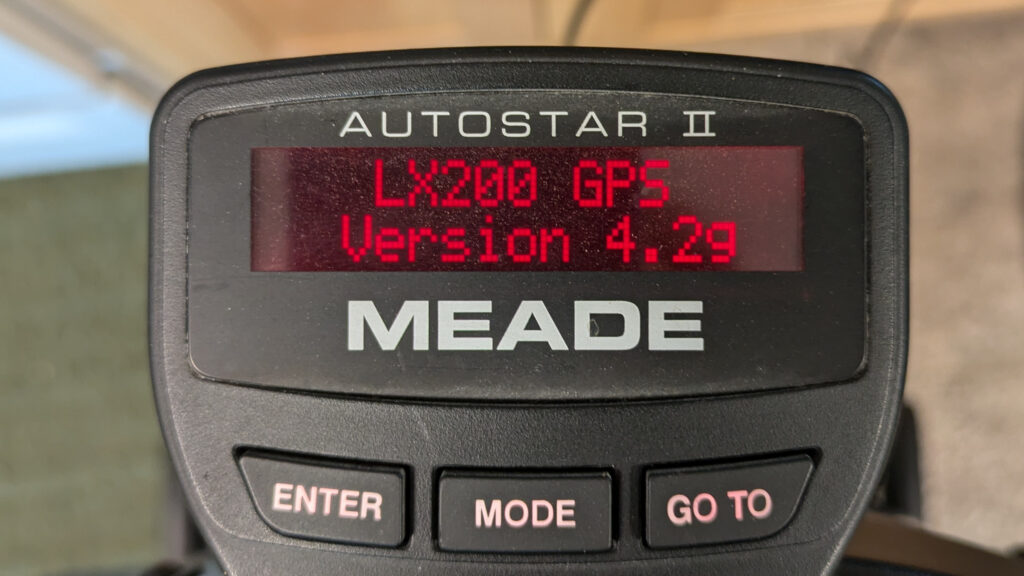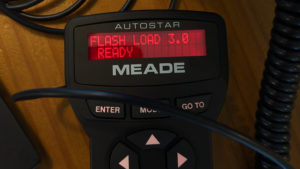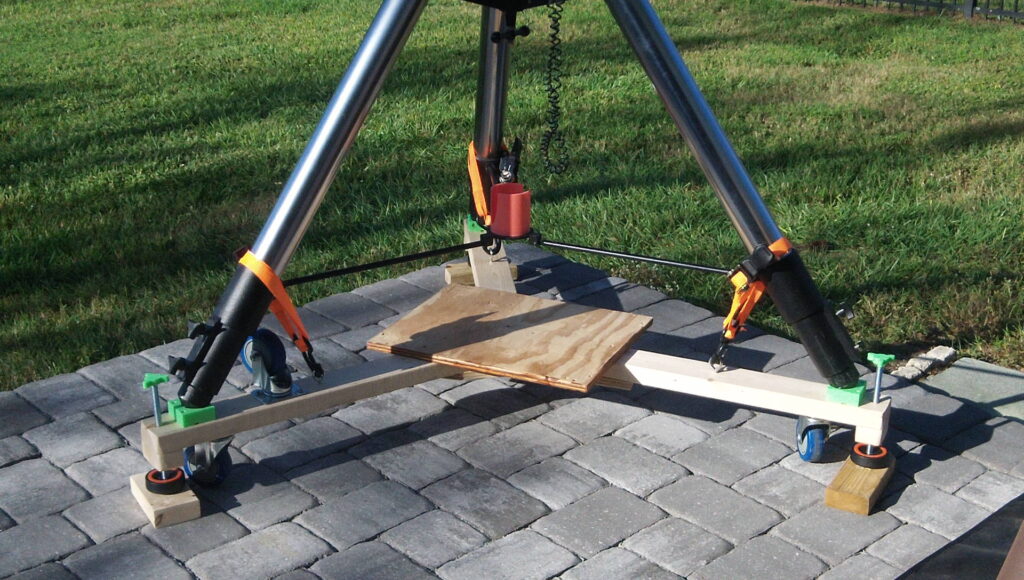I have a Meade LX200GPS – 12″ SCT telescope, which has a focal length of 3048mm (305mm aperture) and a focal ration of f/10. This telescope is great for planetary imaging (what I’m mostly limited to, living in a Bortle 7-8 light pollution area, but there exist optical accessories called Focal Reducers which allow you to get this telescope down to a quick f/6.3 or an incredibly fast f/3.3.
I’ve purchased both an Anteries f/6.3 and a Meade series 4000 CCD f/3.3 focal reducer for my telescope, and have been playing around with them and my Sony A6300 crop sensor camera.
The f/3.3 focal reducer is designed to be used with a small CCD imaging sensor (sold many years ago) and has a lot of vignetting and drop off near the edge of my crop sensor when used with only 50mm of backfocus (so little that I couldn’t include my electronic focuser in the optical path). Some of this could be resolved by calibrating the optical path with light frames, but I feel that the f/3.3 reducer is better for a smaller image sensor region in the center, so you don’t really get the full advantage of the 0.839 degree FOV.
I was able to move the camera very close to the f/3.3 focal reducer by using a NEX->M48 T-ring and a M48->SCT thread adapter. [Probably around 10-15mm of backfocus behind the lens of the focal reducer, no room for the electronic focuser or even a filter. This gave me a more usable view (only the very corners had vignetting/dropoff) but a smaller FOV ( 0.487 degree, close to that achieved with the f/6.6 focal reducer.) I actually didn’t miss the electronic focuser as at f/3.3 the standard focus knob on my LX200 worked just fine with a bahtinav mask and I could achieve fine focus with it.
The f/6.6 focal reducer worked well with the crop sensor size and almost the entire 0.436 degree FOV was usable, even with the camera attached to the end of the electronic focuser (~ 50 mm of backfocus).
The native f/10 native focal ratio gives a relatively small 0.245 degree FOV, and a lot less light so you need higher ISO/Gain settings or longer exposure times, and is really better for planetary imaging than deep space objects astrophotography.
A video about the f/6.3 focal reducer:
A video about the f/3.3 focal reducer:
I took a hundred 10 second exposures with the f/3.3 FR of M42 the great Orion nebula and stacked them with SIRIL for this result:
I did the same thing with the f/6.3 FR, which allowed me to also use a SVBony SV220 dual narrow band filter to get this result:
